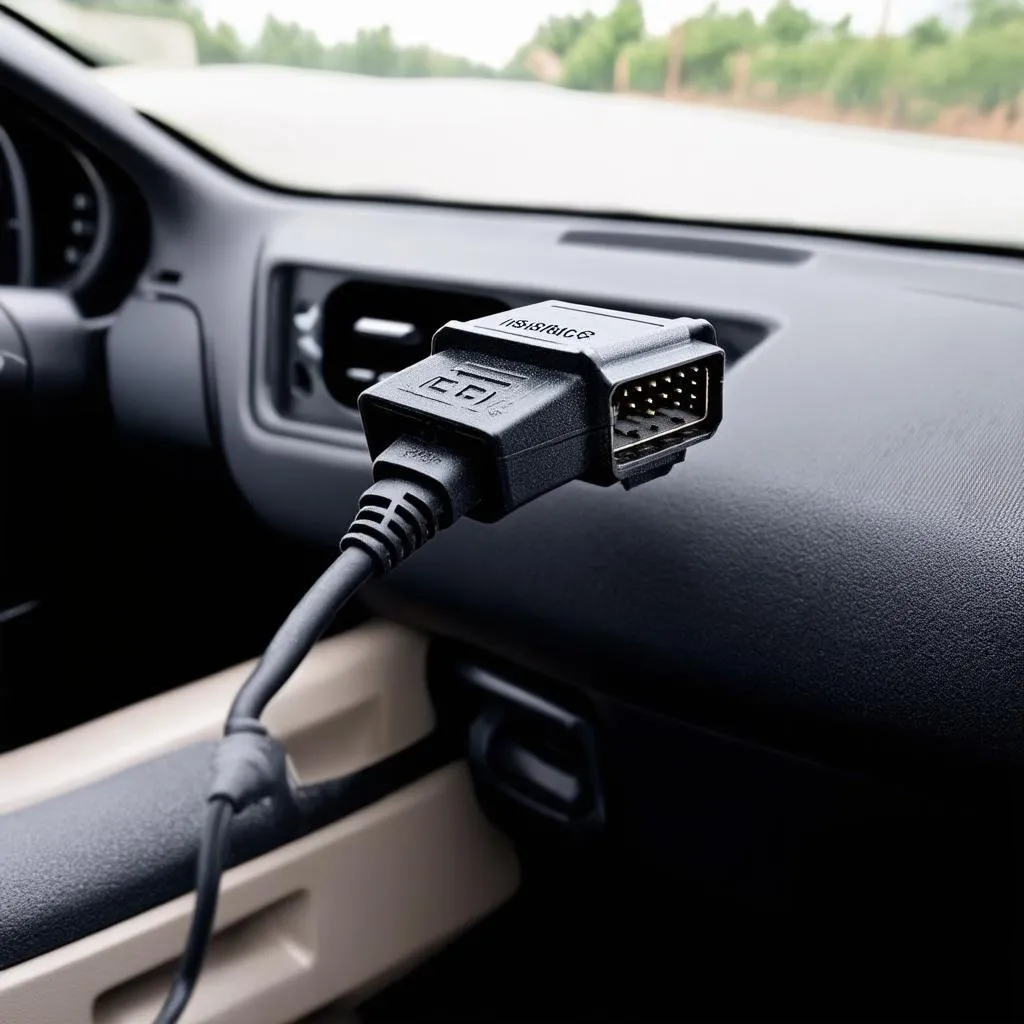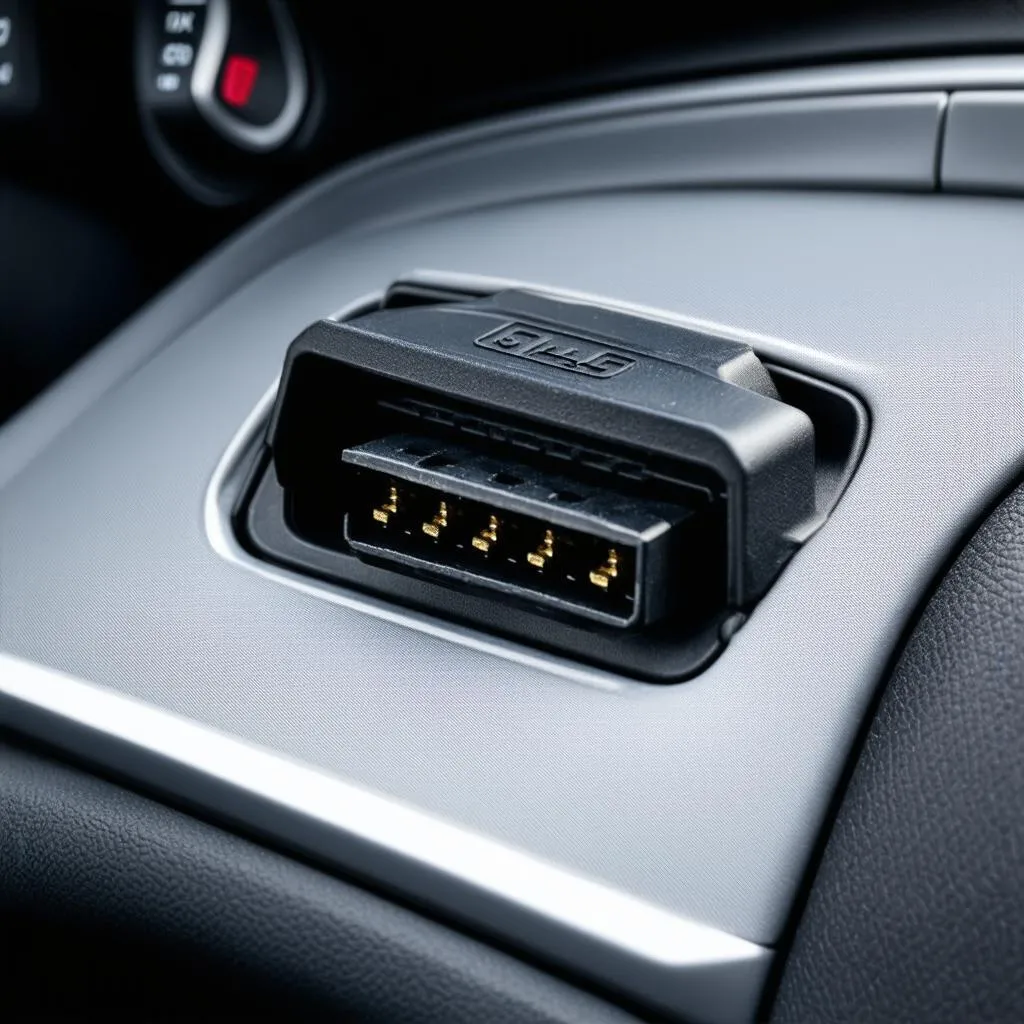You’ve heard about insurance companies using OBD devices to track your driving habits, and you’re wondering if it’s worth it. Perhaps you’re concerned about your privacy, or you’re not sure if it can really save you money on your car insurance.
It’s a valid question, and it’s one that many people are asking. As a car mechanic specializing in automotive electrical systems, I understand the technology and its potential benefits and drawbacks.
Understanding Insurance OBD Devices
Insurance Obd Devices are small, wireless devices that plug into your car’s On-Board Diagnostic (OBD) port, which is usually located under the dashboard. These devices track various driving data, including:
- Speed: How fast you’re driving and whether you’re speeding.
- Braking: How often you brake and how hard you brake.
- Acceleration: How quickly you accelerate.
- Mileage: Total mileage driven.
- Location: Where you’ve driven.
- Time of Day: When you’re driving.
These devices can be used by insurance companies to determine your driving habits and offer you a lower premium if you’re considered a safe driver.
The Benefits and Drawbacks of Insurance OBD Devices
Benefits:
- Lower premiums: Insurance companies can offer lower premiums to safe drivers, based on your driving data.
- Discounts: You might be eligible for discounts and incentives for safe driving.
- Feedback: Some devices provide feedback on your driving habits, helping you improve your driving and potentially reduce accidents.
Drawbacks:
- Privacy concerns: The device tracks your driving data, including your location, which some people find intrusive.
- Data security: There’s always a risk of data breaches, which could compromise your personal information.
- Device malfunction: Some devices can malfunction, leading to inaccurate data and potential issues with your insurance.
Is It Worth It?
Whether or not an insurance OBD device is worth it for you depends on your individual circumstances. If you’re a safe driver and value your privacy, you may want to consider the drawbacks. However, if you’re looking for ways to potentially save money on your insurance and don’t mind sharing your driving data, an insurance OBD device could be a good option.
Frequently Asked Questions
Here are some common questions about insurance OBD devices:
- What if I have a bad driving record? You’re still eligible to use an insurance OBD device. However, it’s unlikely that it will significantly lower your premium, especially if your driving record is extremely poor.
- Can I opt out of the device? You may have the option to opt out of using an insurance OBD device, but this may result in a higher premium.
- What happens to my data? The data collected by the device is typically used by the insurance company to assess your driving habits. However, you should review the privacy policy of your insurance company to understand how your data is used and stored.
Other Considerations:
- Vehicle Compatibility: Ensure that your car’s OBD port is compatible with the device.
- Device Installation: The device is typically easy to install, but if you’re not comfortable with it, you can ask a mechanic for assistance.
- Maintenance: Ensure that the device is regularly maintained and updated.
Conclusion
Insurance OBD devices are a new and evolving technology that has the potential to benefit both drivers and insurance companies. By tracking driving habits, insurance companies can offer lower premiums to safe drivers, while drivers can potentially improve their driving and save money. However, it’s important to carefully consider the benefits and drawbacks before deciding if an insurance OBD device is right for you.
 OBD Device Connected to Car
OBD Device Connected to Car
 Dashboard with OBD Port
Dashboard with OBD Port
 Car Insurance Policy
Car Insurance Policy
If you have any further questions about insurance OBD devices or need assistance with diagnostics tools, please feel free to contact us via Whatsapp at +84767531508. We’re happy to help!
Don’t forget to share this information with your friends and family, and leave a comment below if you have any questions or feedback. And be sure to check out our other articles on car technology and repairs!
